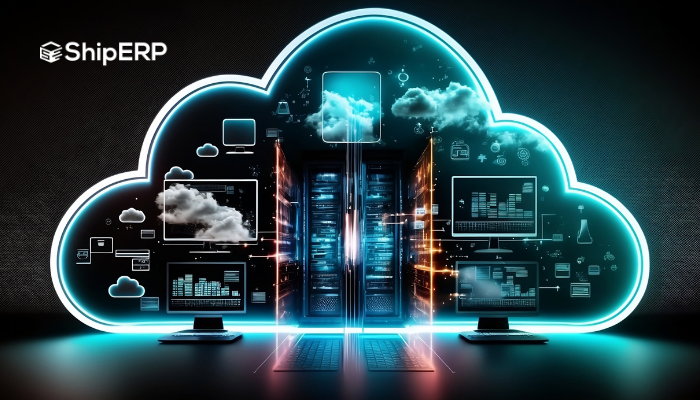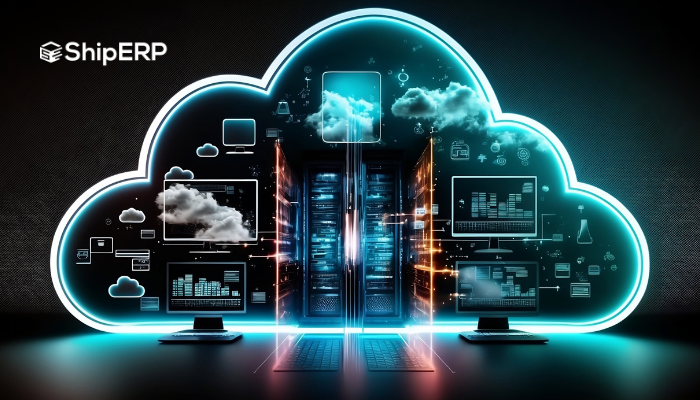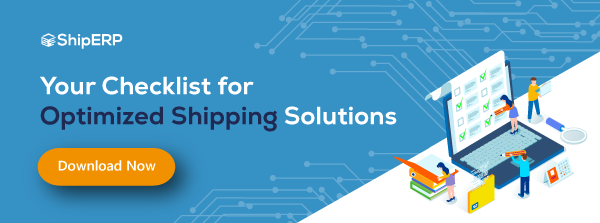
Transportation Management: Why is Everyone Switching to Cloud?
In today's fast-paced world, transportation management plays a pivotal role in the smooth functioning of supply chains and logistics operations. As the industry evolves and embraces digital transformation, one significant trend stands out: the migration of transportation management to the cloud. This paradigm shift is not without reason; numerous benefits make the cloud an attractive option for transportation companies worldwide.
Follow along as our experts delve into the reasons behind this migration and explore how it’s revolutionizing the transportation management landscape!
Real-time Access to the Software Anywhere
Gone are the days when transportation managers were tethered to their office desks, tied down by the limitations of on-premise software. With cloud-based transportation management systems (TMS), real-time access to critical data and software is available from anywhere with an internet connection. This newfound mobility empowers transportation professionals to make informed decisions on-the-go, ensuring agility, responsiveness, and flexibility in managing their operations.
Functionally and Technically Updated Business Solutions
On-premise software solutions often required time-consuming and expensive upgrades to access new features and improvements. In contrast, cloud-based TMS providers continuously update their platforms, offering the latest functionalities and technological advancements seamlessly. This perpetual evolution ensures that transportation companies stay at the forefront of innovation, remain competitive, and adapt to changing industry demands without major disruptions.
Ongoing Op-Ex Model Instead of Significant Capital Expenditure Every 3-4 Years
The transition to cloud-based transportation management provides an attractive financial model for businesses. Traditionally, companies had to invest substantial capital every few years to upgrade hardware and software infrastructure. Cloud-based solutions, however, follow an Operational Expenditure (Op-Ex) model, wherein businesses pay a regular subscription fee. This shift from capital-intensive investments to predictable operational costs allows companies to allocate their resources more efficiently and invest in other growth areas.

Enhanced Security against Ransomware & Other Cyber Threats
In recent years, cyber threats have become a significant concern for businesses of all sizes, including transportation companies. Data breaches and ransomware attacks can lead to catastrophic disruptions and financial losses. Cloud-based TMS providers recognize the importance of robust security measures, often employing state-of-the-art encryption, multi-factor authentication, and secure data centers. These security protocols are continuously updated to stay ahead of emerging threats, providing transportation companies with peace of mind and protection for their valuable data.
Ease of Maintenance and Improved Integrations
Maintaining and troubleshooting on-premise software systems can be complex and time-consuming. Cloud-based TMS solutions alleviate this burden by handling software updates, maintenance, and technical support. This leaves transportation companies to focus on their core competencies, optimizing their operations, and providing top-notch services to their clients. Furthermore, the cloud's open architecture facilitates seamless integration with other business systems, such as Enterprise Resource Planning (ERP) software and customer relationship management (CRM) tools, enhancing overall efficiency and data accuracy.
Ability to Use the Compute and AI/ML Capability of ERP Data Centers
As transportation companies deal with an ever-increasing volume of data, harnessing the power of Artificial Intelligence (AI) and Machine Learning (ML) becomes crucial for gaining valuable insights and optimizing processes. Cloud-based TMS providers can leverage the compute and AI/ML capabilities of ERP data centers, which are highly scalable and designed to support advanced technologies. This allows transportation managers to make data-driven decisions, automate repetitive tasks, and improve the overall efficiency of their operations.

Transportation Management is Better on Cloud
The migration of transportation management to the cloud marks a significant transformation in the logistics and supply chain industry. The shift offers real-time access, continuous updates, cost-effectiveness, improved security, ease of maintenance, and the power of AI/ML capabilities. As businesses seek to remain competitive and agile in an ever-evolving landscape, embracing cloud-based transportation management solutions becomes a strategic imperative. By leveraging the cloud's capabilities, transportation companies can streamline their operations, meet customer demands effectively, and drive sustainable growth in the digital age.


